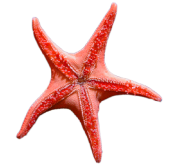The CORaL Network
Go to the CORaL Network Website
The Community Organized Restoration and Learning (CORaL) Network strengthens existing resources across the Exxon Valdez Oil Spill-impacted region, ranging from Prince William Sound, Homer, and Kodiak Island. The CORaL Network empowers the region by fostering collaboration, sharing scientific, cultural, and Traditional Knowledge, and co-creating solutions that respond to community needs. Our efforts, funded by the Exxon Valdez Oil Spill Trustee Council (EVOSTC), ensure that science outreach remains relevant, culturally responsive, and co-created with the communities we serve.
The CORaL Network aims to engage youth in community-based science, coordinate science outreach between organizations, and sustain capacity-building activities such as learning opportunities and internships. We also seek to deepen understanding of Alaska Native knowledge, foster cultural competency, and build collaborative community relationships. Through these initiatives, the CORaL Network supports ongoing regional restoration efforts while addressing the unique needs of impacted communities.
The Alaska SeaLife Center (ASLC) is a proud partner of the CORaL Network alongside five other organizations that serve Southcentral Alaska: Alutiiq Museum Archaeological Repository (AMAR) in Kodiak, Chugach Regional Resources Commission (CRRC) in Seward, Prince William Sound Science Center (PWSSC) in Cordova, Alaska Sea Grant (ASG) in Valdez, and Center for Alaskan Coastal Studies (CACS) in Homer.
CORaL’s Programs and Initiatives:
- Community Coastal Experience: This annual program is an opportunity for adults ages 18 and up to explore career and internship pathways in marine science, archaeology, cultural history, and more. Over the span of four to five weeks, participants travel with program leaders to observe, learn, and practice new skills in Kachemak Bay, Seward, Cordova, and Kodiak. The program is spearheaded by CACS, but overall it is a colossal collaborative effort among partners, from program development, participant selection, and hosting in their respective locations. This level of collaboration also presents opportunities for co-learning between participants and host organizations.
- Collective Alaska Native Perspectives: Each year CRRC leads a Collective Alaska Native Perspectives series to build an understanding of Alaska Native true history, legal complexities, diverse cultural practices, and the way of life from the perspective of Alaska Native People. Participants are invited to explore opportunities to learn from other cultures and share experiences through panel participation with Alaska Native Elders and an all-Native Mentor panel.
- Educational Programs: Many partners within the CORaL Network offer immersive educational opportunities that demonstrate the power of cross-sector collaboration between local schools, organizations, and scientists. Two examples of this include Ocean Science Week, led by CACS, and Ocean Sciences Festival, led by PWSSC. All CORaL partners participate in Ocean Science Week, collaborating in the process of program creation and presentation to create a diverse experience for students. These opportunities grow students’ awareness, expand their curiosity, and help them to begin building relationships with scientists and educators throughout the region. CORaL is also involved in the annual Seward Symposium and Stewards of the Bay monthly series led by ASLC, CRRC, and other local Seward agencies.
- AKSEA: The Alaska Knowledge, Science, and Education Alliance (AKSEA)aims to foster connections across the region and share knowledge from, and with, all our community members. It brings together traditional knowledge experts, researchers, graduate or recent graduate students, and school educators to co-create lessons focused on marine-related anchoring phenomenon in the Exxon Valdez Oil Spill region.
- Coastal Connections Camp: This camp-in-a-box program, facilitated by ASG as a CORaL community outreach activity, is a week-long summer program that includes outdoor exploration, hands-on science, art, team building, and personal resilience skills. ASG recruits members from the community hosting the camp, creating an opportunity for local involvement. CORaL partners also attend camp training, bringing the curriculum back to their own facilities. The camps are offered in collaboration with local entities.
- Historic Preservation: Spearheaded by AMAR, this set of resources promotes the value of archaeological sites and their preservation. When people know that ancestral sites and objects hold valuable information, they are more likely to respect sites and report findings to a local professional.
- Alutiiq/Sugpiaq Cultural Orientation: AMAR hosts a bi-monthly virtual, one-hour orientation to introduce the history and culture of the Alutiiq/Sugpiaq people who have lived in Kodiak for at least 7,500 years.
ASLC’s Key Contributions to the CORaL Network:
The Alaska SeaLife Center (ASLC) serves as the grant administrator and principal investigator for the CORaL Network, playing a key role in advancing the network’s goals. ASLC facilitates partner meetings, manages communications, oversees budgeting and reporting, and conducts evaluations to ensure the success of the initiative. In addition, ASLC integrates cultural competencies into exhibits and educational programming, fostering collaboration on both scientific and cultural outreach efforts.
As a founding partner of Stewards of the Bay, ASLC helps organize the annual Seward Science Symposium and the monthly Community Connections Series, which highlight the intersection of research, science, and culture. These events promote community pride and environmental stewardship, with a strong emphasis on Indigenous-led research.
The ASLC also leads the production of videos for a cross-network media portal and kiosk library, showcasing the diverse and impactful work of the CORaL Network.
Additionally, in 2023, the ASLC launched COMPASS (Community Pathways for Student Science), a 6-year program to establish a regional partnership that connects schools with citizen science opportunities. This project builds upon Dr. Tuula Hollmen’s successful SeeBird Project, a community science education initiative started in Seward. COMPASS allows students to actively engage in the scientific process, explore their local environment, and contribute to research in the Gulf of Alaska, strengthening the partnership between scientists, educators, and communities.
(Caption: CORaL Network partners gather for a photo during a shared meal at the CORaL Annual Meeting in Cordova, 2024)
SUBSCRIBE TO OUR MONTHLY NEWSLETTER
[Subscribe to email newsletter link]
Previous CORaL Network Newsletters:

